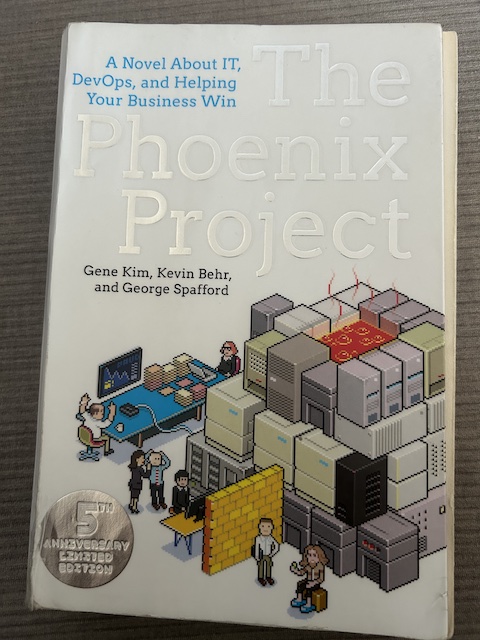 |
Anyhoo, this was a weird book. It is a hero tale of an IT manager, who suddenly gets promoted to a VP of IT operations and is suddenly responsible for saving a multi-billion company from serious trouble and his entire IT team from being outsourced. And naturally, he accomplishes this with the help of a mysterious stranger who brings in his sensei-like wisdom about DevOps, and a few people who are eager to grasp onto these pearls of wisdom escaping his lips.
As a book, it's shit. Characters are uninteresting, plot is thinner than the paper the book was printed on, and I could not help but facepalm occasionally. There are three kinds of people in this book: Smart and Wrong, Stupid and Wrong, and Smart and Right. Of course the people who are Smart and Wrong become people who are Smart and Right, because of DevOps wisdom sprinkled by the protagonist and his sensei. And people who are Stupid and Wrong are the main antagonists here, and they of course lose. Because the hero story, right?
But as an illustrated case study for DevOps principles, it is brilliant. Basically this is a list of all different issues your company might be having, ranging from too much work-in-progress to managing unplanned work to managing conflicting business priorities and whatnot. It's easy to put yourself in the shoes of the protagonist, and just execute smart plans using solid principles to solve each problem as they come along. In that sense, it's not that different from a lot of hero epics, such as The Martian by Andy Weir (which, unlike this, is actually a good book that I recommend).
This book is an interesting approach. It has certain, well, aynrandistic preachiness in it, but still a free-flowing fiction might be in some cases a good way to make your reader to think about the ideas you have. So if you read it as a marketing text on DevOps, it's pretty good. It's easy and fast to read, doesn't really slow down anywhere, and comes with a useful appendix of an excerpt of the business book they really want you to buy after this one.
Just don't expect a great narrative, well-rounded characters, or actually, well, caring about any of them.
Just a bit of ye goode olde haircut blogging, just because I feel like it today. I mean, I could write this up also in Facebook, but I'm getting a bit tired of it, really.
But hey, so I wake up this glorious Monday morning, wondering why my alarm clock didn't go off? But hey, I am only a few minutes late, and I have plenty of time in the mornings usually. I like my morning routines, waking up slowly, reading the news, etc.
So the news isn't obviously good (because it seems that there are two nuclear-capable nations just lobbing missiles at each other), so I get distracted a bit. As I am slowly moving towards leaving for work, I check my bank app. It's payday, so I sortakinda want to just see the numbers, as it's also "pay my monthly house loan dues" -day.
Nothing. No money in, no money out.
WTF?
Slowly it dawns on me. Is it... Sunday? Could it be?
Oh darn. It is Sunday. But hey, that's good right! I'm already up early and ready to go!
(A few hours later I've squandered most of the morning by debugging some spam filter issues and ugprading things left and right...)
Although... Why didn't I notice it's Sunday? Probably because in the digital world, Sunday is pretty much the same as all other days. No more Sunday issues of newspapers - they all look the same in the app. No morning TV - Youtube and Netflix have the same stuff every day. No morning radio - it's all just Spotify. So it's a bit weird to realize that one thing that this hyperpersonalized age and information work completely deletes is the gut feeling for passage of time. In a way, it is a return to earlier times, when seasons where the defining factor in people's lives. Industrial age was very much about dividing labour into hours and weeks and months over seasons and years, but information work does not care. We expect to have our services available when we want them, not 9-16 on weekdays. Information workers are not only allowed, but sometimes encouraged to ignore "regular hours". And the further we drift from the industrial age, a day, week or month is pretty much the same as any other. Seasons we notice, years we feel passing.
I take no value judgement on whether this is good or not. But the change is likely not to halt here.
Private comments? Drop me an email. Or complain in a nearby pub - that'll help.
|
More info...
|
| "Main" last changed on 10-Aug-2015 21:44:03 EEST by JanneJalkanen. |



